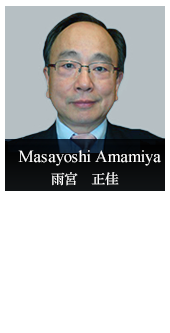 |
Apr. 1979 Joined the Bank of Japan / May 1999 Director, Head of Planning Division I, Policy Planning Office / Apr. 2001 Associate Director-General, Policy Planning Office / June 2002 Associate Director-General, Bank Examination and Surveillance Department / July 2004 Deputy Director-General, Secretariat of the Policy Board / Apr. 2006 Director-General, Monetary Affairs Department / June 2010 Executive Director / May 2012 Executive Director and General Manager, Osaka Branch / Mar. 2013 Present Position
Education: 1979, BA in Economics, The University of Tokyo

|
Session 1
Special Lecture:
Japan's Economy and Monetary Policy |
 |
Prior to joining BlackRock in 2011, Mr. Di Censo worked at the International Monetary Fund in Washington D.C. He served as a financial sector economist on a broad range of policy issues in Europe, Japan, India, Indonesia, and Korea. Prior to his work at the IMF, Mr. Di Censo was a Senior Vice President at Lehman Brothers, later Barclays Capital, where he spent nine years as a member of the asset allocation research group. In that role, he formulated investment strategies across global fixed income markets.
Mr. Di Censo has an MA degree in economics from the University of Pennsylvania and received a BS degree, magna cum laude, from Georgetown University's School of Foreign Service in 1998.

|
Session 2
Secular Stagnation or Revival and Reflation? |
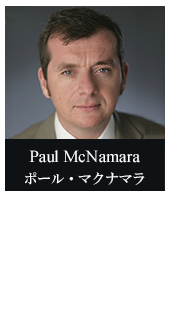 |
Paul McNamara is an Investment Director, and is the lead manager on emerging market bond and currency long only and hedge fund strategies. Mr. McNamara joined GAM following its acquisition of the fixed income and foreign exchange specialist, Augustus, in May 2009 where he started managing most of the funds he runs to date. Mr. McNamara joined Augustus (then Julius Baer Investments Limited) in 1997 from the Export Credits Guarantee department of the UK Government Economic Service, where he was an economist. He began his career as a lecturer. Mr. McNamara holds an MSc in Economics from the London School of Economics. He is based in London.

|
Session 2
Secular Stagnation or Revival and Reflation? |
 |
Mr. Mutoh spent over forty years working in the public sector and has been Chairman of DIR since 2008. Recently, Mr. Mutoh made the opening remarks at IMF and World Bank Group Annual Meetings 2012 held in Tokyo. Mr. Mutoh and DIR proposed the establishment of the Eastern Japan Great Earthquake Reconstruction Fund right after the earthquake on March 11, 2011. Currently, he serves as Chief Executive Officer of The Tokyo Organizing Committee of the Olympic and Paralympic Games.
Prior to Daiwa, Mr. Mutoh was Deputy Governor of the BOJ from 2003, and was engaged in the lifting of the zero-interest-rate monetary policy. He was appointed administrative vice minister of Finance in 2000, and was engaged in the planning and execution of the financial policy for successive cabinets.
Mr. Mutoh graduated from The University of Tokyo in 1966 with a bachelor's degree in Laws (LL.B.).

|
Session 3
Special Lecture:
Can Abenomics Be Sustained?
- Opportunities and Challenges Ahead - |
 |
In 1984, Hara founded DEFTA Partners and became a partner at Accel Partners in the 1990's. Hara helped to create and manage IT firms as chairman, board member of companies such as Borland (2nd largest PC software), Oplus Technologies (Merged with Intel in 2005), and Fortinet (NASDAQ IPO in 2009). While creating ventures in advanced nations, Hara founded DEFTA Development Holdings to bring cost effective information infrastructure technologies to less developed countries in Asia and Africa through private and public sector initiatives. In the public sector, Hara serves as Chairman of the Alliance Forum Foundation, an international organization in special consultative status with the UN Economic and Social Council.
LL.B. from Keio Univ. and M.S. from the Graduate School of Engineering at Stanford University.

|
Session 4
Future of Impact Investment |
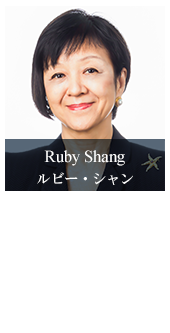 |
Ms. Shang has been a senior manager at the Clinton Foundation since 2003, establishing the Health Access Initiative in 7 countries and the Climate Change Initiative in 11 cities. She was responsible for starting up the Clinton Health Access Initiative in Cambodia, Laos, Thailand, Vietnam, Indonesia and Papua New Guinea as Regional Director for SE Asia. In 2008, she assumed additional responsibility for the Clinton Climate Initiative in China, Japan, Korea, as well as SE Asia, implementing sustainable Energy Efficiency Programs for Building Retrofit and Solid Waste with the 11 city governments, as well as Forestry programs with the national Forestry Ministries in Cambodia and Indonesia. She received a BA from Brown University.

|
Session 4
Future of Impact Investment |
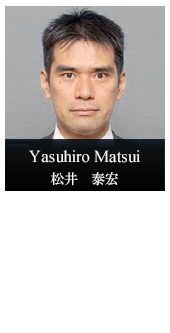 |
Apr. 1994 Joined Development Bank of Japan Inc. / Apr 2004 Representative, Washington DC Office / Jun. 2011 Senior Vice President, Structured Finance Group / June 2012 Director, Treasury Department (Current Position)
Education: 1994, BE in Civil Engineering, University of Tokyo / 2012, MBA, MIT Sloan School of Management

|
Session 4
Future of Impact Investment |
 |
David has worked for the FT for more than 20 years as a foreign correspondent, senior editor, and columnist. Starting in 1990, he worked on the international and main news desks in London before being posted to Santiago, Chile in 1993. Between 1994 and 1997 he was based in Buenos Aires, Argentina, before returning to London to become Deputy Editor of the comment and analysis page. Between 1999 and 2002, David was the global pharmaceuticals and biotechnology correspondent, covering topics from mega-pharmaceutical mergers to the scourge of AIDS in Africa and the scientific race to decode the human genome. In 2002, he moved to Japan for a six-year stint as Tokyo Bureau Chief covering the Koizumi years and the beginning of the historic downfall of the Liberal Democratic Party. Now, David Pilling is the Asia editor of the Financial Times. He oversees the FT's coverage of the Asia region from Afghanistan to Australia, including China, India and Japan.

|
Session 5
Asia: Rising Expectations, Rising Tensions |
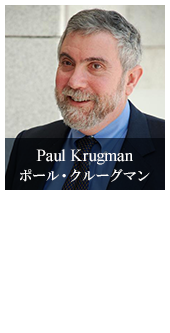 |
In addition to the Nobel Prize, Krugman's work in economics has earned him broad acclaim from the economic press and several prestigious awards, including the John Bates Clark medal from the American Economic Association for his work in international trade and finance. He is recognized worldwide as a leader in the fields of economic geography and the role of increasing returns in shaping international trade.
He was chosen as one of Bloomberg's 50 Most Influential People in Global Finance, 2011. He has been honored to be one of Foreign Policy's Top 100 Global Thinkers for four straight years (2009-2012).

|
Session 6
Key Note:
The World Economy, ....what now? |
|
|
|
|
|

